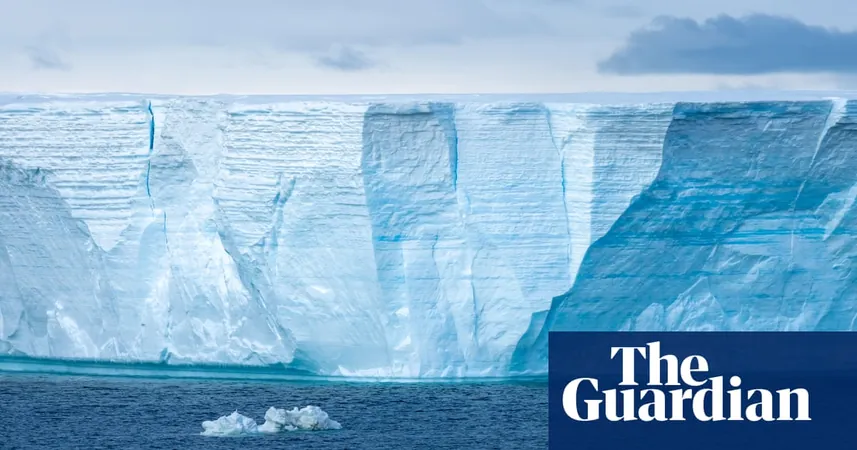
US Halts Critical Sea Ice Data, Alarming Scientists Worldwide!
2025-07-01
Author: Kai
A Shock to Climate Scientists
In a startling move, the US Department of Defense has announced it will stop processing and sharing vital satellite data used for tracking sea ice conditions by the end of this month. This decision is igniting fears among scientists who depend on these insights to understand rapid climatic changes at both poles.
Why Sea Ice Tracking Matters
Sea ice plays a crucial role in regulating Earth's temperature by reflecting the sun’s energy back into space. As global warming progresses and more ice melts, a larger area of the ocean absorbs this energy, exacerbating the heating of our planet.
The Essential Sea Ice Index
The National Snow and Ice Data Center (NSIDC) in Colorado has been pivotal in maintaining a Sea Ice Index, which monitors sea ice extent in real-time. Recent updates confirm that crucial data provided by the Department of Defense (DoD)—which owns the satellites monitoring sea ice—will no longer be available starting July 31.
Alarm from Climate Experts
As scientists anticipate disruptions from this cut, the repercussions could be dire. Recent studies have linked unprecedented drops in Antarctic sea ice to increased iceberg calving, raising alarms about accelerated global sea-level rise—something models had not fully predicted.
Data: Our Planet's Vital Signs
Dr. Alex Fraser, a key researcher at the Australian Antarctic Program Partnership, emphasizes that the sea ice data is akin to a heart rate monitor for Earth’s ice systems—“It’s our early warning system.” He expresses concern that scientists will struggle to maintain a contextual record without access to this data.
New Instruments, New Challenges
The NSIDC is exploring alternative and higher-resolution instruments, but cautions that these new sources may not directly correlate with previous data. Dr. Walt Meier mentions, “Although we can maintain a record, the consistency may be compromised.”
What’s at Stake for the Future?
Dr. Sue Cook, also with AAPP, warns that if summer sea ice continues to decline but forecasting models rely on outdated data, we risk severely underestimating how quickly Antarctica could contribute to rising sea levels. This could spell disaster for coastal regions worldwide.
Cascade of Consequences
The implications extend far beyond rising seas. Declining sea ice could lead to diminished populations of seals and penguins. In a tragic incident, approximately 7,000 emperor penguin chicks died in late 2022 due to early ice melt, emphasizing the broader ecological crisis at hand.
An Official Confirmation
A spokesperson for the US Navy confirmed the data discontinuation, stating it aligns with the DoD's policy and is part of broader IT modernization efforts. The discontinuation of the Defense Meteorological Satellite Program (DMSP) is set for 2026, leaving scientists scrambling to adapt to these sudden changes.
A Call to Action
As climate change accelerates, the loss of critical data access could impede vital research efforts. The scientific community urges immediate action to maintain global awareness of our planet’s changing ice landscapes—before it’s too late!




 Brasil (PT)
Brasil (PT)
 Canada (EN)
Canada (EN)
 Chile (ES)
Chile (ES)
 Česko (CS)
Česko (CS)
 대한민국 (KO)
대한민국 (KO)
 España (ES)
España (ES)
 France (FR)
France (FR)
 Hong Kong (EN)
Hong Kong (EN)
 Italia (IT)
Italia (IT)
 日本 (JA)
日本 (JA)
 Magyarország (HU)
Magyarország (HU)
 Norge (NO)
Norge (NO)
 Polska (PL)
Polska (PL)
 Schweiz (DE)
Schweiz (DE)
 Singapore (EN)
Singapore (EN)
 Sverige (SV)
Sverige (SV)
 Suomi (FI)
Suomi (FI)
 Türkiye (TR)
Türkiye (TR)
 الإمارات العربية المتحدة (AR)
الإمارات العربية المتحدة (AR)